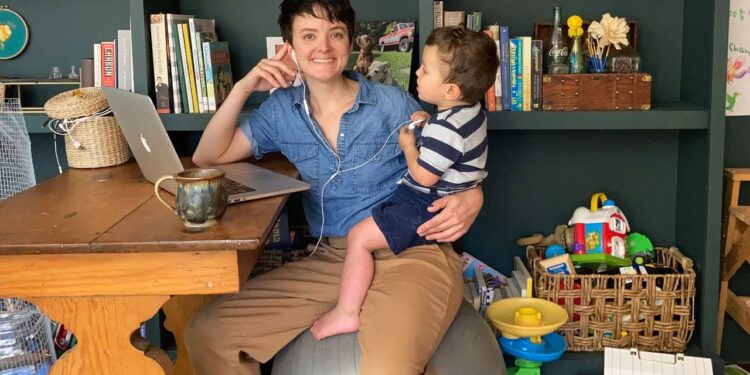When individuals become their own bosses, the pressure to constantly generate income can lead to a sense of guilt whenever they take time off. This guilt can result in long working hours, blurred boundaries between work and personal life, and a persistent feeling of inadequacy. But is there a better way to balance the two worlds in a more equitable and frictionless manner?
As a freelance journalist, I am familiar with this problem only too well. Even on a sunny weekend, I find myself working from the passenger seat of my camper van, attempting to assuage the guilt of not being constantly connected to work. The upside of self-employment lies in the ability to control one’s time, to effectively set my own schedule, yet it more often than not morphs into an insatiable drive to maximize every moment for financial gain, sometimes to the detriment of quality time with the family.
Shannon Loys, a self-employed graphic designer in North Carolina, shares this sentiment. She experiences the most intense guilt when engaging in enjoyable activities – both with friends as well as family – that do not contribute directly to her income. This nagging and persistent feeling of wasting time undermines the pleasure of these activities, as demonstrated by a study in the Journal of Experimental Psychology. So what’s the solution?
Be realistic
Understanding the value of your time, and the fact it is not of unlimited quantity, is crucial for success as a self-employed individual. This awareness creates a constant questioning within oneself that equates unpaid time with ungained earnings. Consequently, hobbies and personal interests often take a back seat to work, as they are seen as time that could have been used more productively in terms of furthering profitable work.
However, this mindset can actually hinder the enjoyment of your valuable free time. Canadian researchers found that people who view their time through the lens of how much money is being made makes individuals more impatient when engaging in activities purely for pleasure. Balancing work and leisure becomes a delicate dance, with the risk of overwork and burnout ever-present. Self-employed individuals are particularly susceptible to this phenomenon. What is needed is the individual to clearly differentiate work time and family time, both in practice and in mind, and to see the value in said family time as an important part of life, not as a missed opportunity for additional earnings.
Striking a balance
Without the stability of a fixed income and the fear of losing clients, many self-employed people often struggle to disconnect from work. Research confirms that disengaging from work is crucial for managing stress and enhancing mental well-being. Unfortunately, many self-employed workers find it challenging to achieve this, leading to increased burnout rates and unhappiness compared to traditional employees.
Creating boundaries is an ongoing battle for individuals like Shannon. She often reminds herself, sometimes vocally, of the importance of taking breaks and prioritizing personal time. However, breaking the cycle of guilt and overwork can be difficult, as it requires a fundamental shift in mindset. We’re not machines, we need downtime, even during a working day, and striking a balance between rest and work is crucial. Changing your mindset will go a long way to changing your cycle of potential overwork.
Accentuate the positive
Despite these challenges, self-employment offers unique advantages compared to other working arrangements. Many self-employed individuals report higher job satisfaction and a greater sense of fulfillment and genuine accomplishment. The freedom and flexibility that come with being your own boss are compelling reasons to persevere, even in the face of potential burnout. These are positives to be embraced and remembered.
Nevertheless, there is an inherent irony in self-employment. While it affords autonomy over one’s time, it can also undermine the ability to truly enjoy leisure time as the thought of work can often intrude into what should otherwise be valuable downtime. As previously mentioned, striking a balance between work and personal life is a constant struggle, requiring self-employed individuals to not only become more compassionate bosses to themselves but also to change their mindset, their practices, and indeed even their daily schedule.
But it can be done! There is room for both work and rest, for both to have their places, and to not clash with each other. It might take effort, but trust us, you’ll thank yourself later that you made that effort and your life will seem so much more enriching as a result… good luck!


